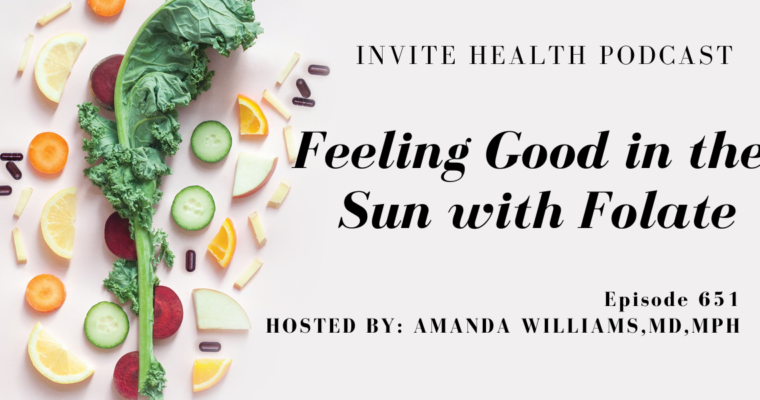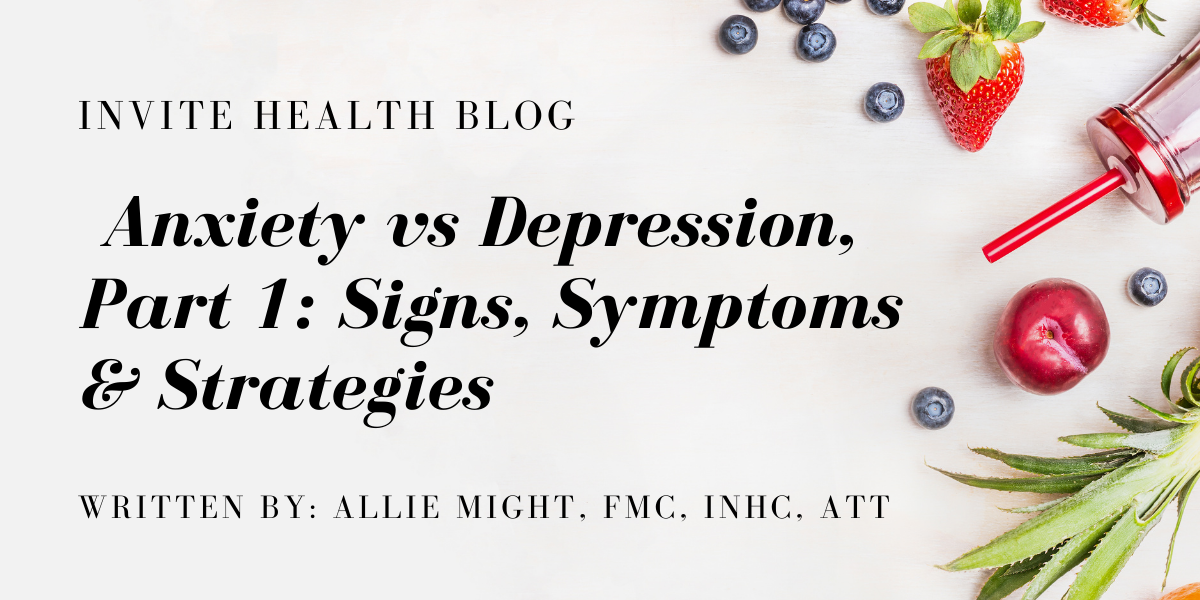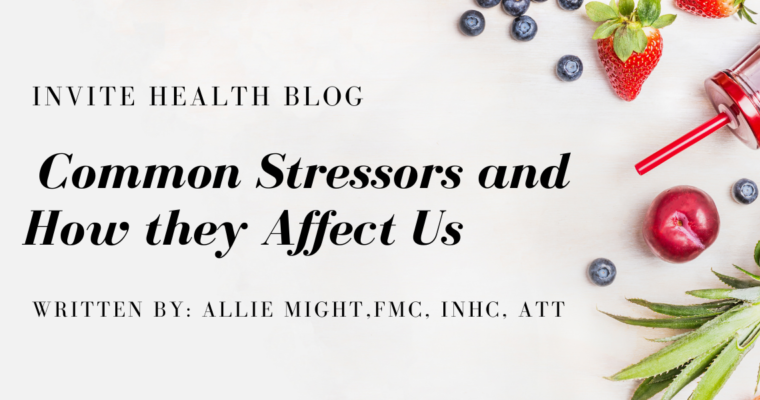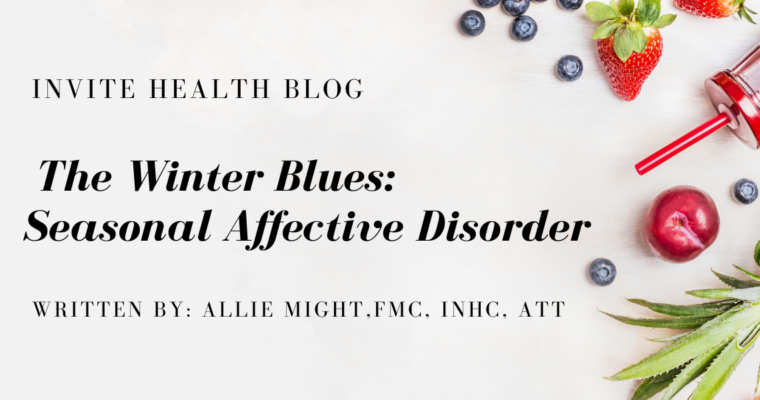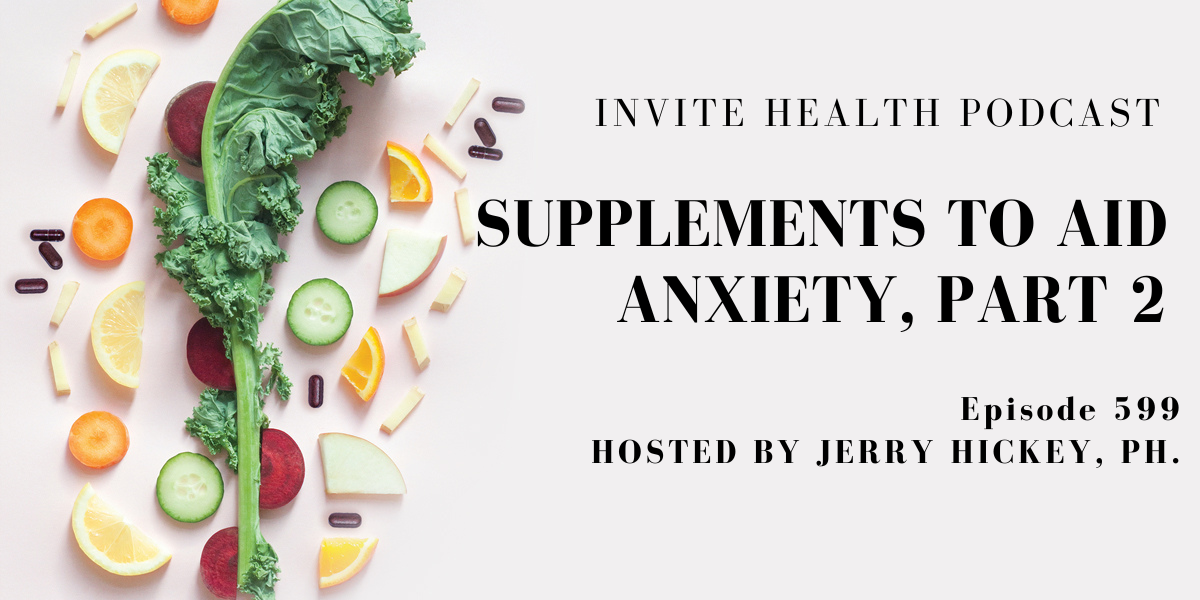Subscribe Today!
Please see below for a complete transcript of this episode.
Supplements to Aid Anxiety, Part 2, Invite Health Podcast
Hosted by Jerry Hickey, Ph.

InViteⓇ Health Podcast Intro: [00:00:04] Welcome to the InVite Health podcast, where our degreed health care professionals are excited to offer you the most important health and wellness information you need to make informed choices about your health. You can learn more about the products discussed in each of these episodes and all that InVite Health has to offer. At www.invitehealth.com/podcast, first time customers can use promo code podcast at checkout for an additional 15% off your first purchase. Let’s get started.† [00:00:34]
Jerry Hickey, Ph: [00:00:38] Okay. Welcome back. I hope you listen to part one of this episode. We’re looking at nutritional supplements that can aid anxiety. In the first part, I spoke about the symptoms of anxiety. I didn’t go into the drugs, but I did go into the nutritional supplements. And we discussed rhodiola, which is also called Viking ginseng, which is also great for energy and endurance. So it’s worth a try. It’s very safe. I also discussed L-Theanine from the tea plant, which is good for being soothing and a little bit anxious and nervous and helps you focus and even helps creativity a little bit without making you sleepy. Take 100 milligrams at a time, 2 to 4 times a day, and that may be helpful. For anxiety, it’s worth a try because it’s very safe. And then I started to discuss fish oils.† [00:01:22]
[00:01:22] So we’re going to continue today with fish oils. This is Frontiers in Physiology August 2018 at University of Bordeaux in France. That region makes great wines. So they said the brain is particularly enriched with polyunsaturated fatty acids, and then they talk about omega six to omega three. We discussed that at the end of the last episode. Omega six tend to come from vegetable oils. Omega three come from like flaxseed and fish oils and walnuts and avocados. There’s generally an imbalance in Western society. We’re getting an awful lot of Omega six and I don’t know if omega three you need a balance of those oils for the immune system. So when there’s not enough omega three like from fish oils or krill oil and there’s too much omega six, omega six is loaded into processed foods, you tend to become inflamed. And this can affect the brain, the heart, the immune system. It does a lot of things. So of course it affects the immune system because that’s what inflammation is all about. But I said the brain is particularly enriched with polyunsaturated fatty acids, omega six from vegetables. And I said, Don’t worry about eating vegetables and getting vegetable oils because you don’t get that much. It’s actually when you put oils on something or they incorporate the oils into the production of foods. So they said these unsaturated fatty acids have received substantial attention as being relevant to many brain diseases, including anxiety and depression. They reviewed the importance of fish oil type fatty acids for the prevention and also for the treatment of neuropsychiatric diseases. And they go on to say mainly depression and anxiety.† [00:02:56]
THE ‘VIKING GINSENG’, RHODIOLA, MAY HELP RELIEVE BURN OUT AND STRESS>>READ NOW!
[00:02:57] So they focused on clinical and experimental research linking fish oil type fatty acids with improving depression and anxiety, and in particular, they highlighted how fish oils can modulate neurobiological processes involved in the pathophysiology of anxiety and depression. In other words, the things that are going on, the natural pathways in your brain that are disturbed, that lead to anxiety and depression, those pathways would be offset by enough fish oils. So not only can it help you treat anxiety and depression, it can help prevent anxiety and depression. And there’s no doubt about that. There’s a lot of research on it.† [00:03:31]
[00:03:32] So they say it affects the endocannabinoid system. That’s very interesting. That’s where CBD affects, cannabidiol in the brain there CB1 receptor sites that are great for neuropsychological issues like anxiety and stress. Maybe not depression, but certainly anxiety and stress. And then they talk about the hypothalamic pituitary adrenal axis. The hypothalamus is a major organ in the lower part, back of the brain, that controls the rhythms of the body. Your body’s internal clock called your circadian rhythm, you know, sleep ,awake and all that. And then the pituitary is where you control the neuroendocrine system, the release of all different hormones by the body, like stress hormones from the adrenal glands and thyroid hormones from the thyroid. So they’re talking that there’s an axis of interaction between your brain and all these glands, including the stress glands, the adrenal glands, since these two triangular glands, one sits on top of each kidney. So here, the fish oils affect the endocannabinoid system, the CB1 receptor sites involved with controlling the body’s rhythms and stress and anxiety and fear, etc.. So that’s a good thing.† [00:04:36]
[00:04:37] So here’s JAMA Network. Open JAMA is Journal of the American Medical Association, and it’s the use of fish oils for anxiety symptoms, but it’s a systematic review and meta analysis. I mean, how many medical doctors have subscriptions to that? Right. A systematic review means they go through all of these electronic databases that collect research and they pick out the studies that pertain to fish oils and anxiety. And then they perform a meta analysis. They put aside the studies that just don’t fit what they’re looking for. Like maybe it’s unclear, the results, maybe it’s poorly organized, maybe it’s poorly reported. Maybe they felt it was a bias to the study, and then they pick out the studies that are exceptional, that are looking at what they want to look at. In this case, do fish oils help the symptoms and severity of anxiety. So let’s see, they have 19 human clinical trials, so this is JAMA, open JAMA Journal of the American Medical Association and total it was 1203 people on the fish oils with anxiety, a mean age of 44 so they were probably like age 35 to like age 50, 55% were women and then 1037 people not on fish oils. And they said there was clearly a connection between symptoms of anxiety and treatment with fish oils compared to placebo, etc., that the fish oils really improved anxiety. So they said the anxiolytics effect of fish oils, see that’s really important. Anxiolytic means it gets rid of symptoms of anxiety. It treats symptoms of anxiety. This is without using a drug. The anxiolytics effect of omega three puffers fish oils were significantly better than that of controlled with a higher dosage. So it had to be at least 2000 milligrams of fish oils a day, lower than 2000 milligrams did not improve the symptoms of anxiety.† [00:06:22]
[00:06:23] Now let’s look at CBD, in the old days there was a marijuana plant and in marijuana there was THC, which is Delta nine tetrahydrocannabinol. That’s the stuff people use when they go to concerts and they want to get high. So that’s the stuff people used to smoke on a weekend. And then there’s cannabidiol, which does not get you high. But they found out that they could separate the plants. So there’s still the marijuana plant where they get the recreational marijuana that they use in parties and concerts and stuff. I don’t touch it. It’s not good for the brain. It reduces circulation of the brain. And then there’s the cannabidiol, which is now from the hemp plant. It doesn’t have the THC. It doesn’t have the component that gets you high. That’s not good for the brain. And they found that cannabidiol is very safe for the brain. How did they find that out? There was signs from decades that children who had epileptic seizures where the drugs didn’t work, CBD worked. There were signs that CBD worked for dozens of years, and recently they actually made a drug out of CBD, which is cannabidiol, which to me comes out of hemp plant, not the marijuana plant. They really have to differentiate their explanation of that. There’s no THC. You don’t have the THC in the hemp plant. It has to be below 0.3%, which is basically nothing, but that’s by law.† [00:07:43]
[00:07:44] Now the cannabidiol they use in children. These are very fragile people. They’re very vulnerable, is a super high potency, hundreds of milligrams. But yet when you want to help somebody with stress or anxiety, you’re giving them like 20 milligrams or 30 milligrams. You’re giving them very little and it’s extremely safe for them. So here’s the journal Neuro Therapeutics now in the body CBD cannabidiol effects CB2 receptor sites for like pain. So it’s very good for pain. That’s why you can have a CBD cream or ointment or roll on for like joint pain and back pain or muscle pain or even nerve pain. Whereas the capsules or the liquid drops and the squirts, the extracts, they’re useful for the brain, they’re useful for pain too, as they affect the CB1 receptors sites in the brain that calm you down and help with stress and anxiety. I don’t know if they help with depression and I don’t know if it helps with sleep, unless you can’t sleep because you’re anxious or stressed out and it’ll help you. But regular insomnia, I do not believe CBD helps. So that’s why when we market it, we have a hemp with melatonin. The hemp is for the stress to calm down the brain and clear out all the noise, so you can relax, and the melatonin is for the sleep, so that makes sense. But of course, you don’t take melatonin in the daytime, so you take straightforward hemp capsules. So here’s the journal Neuro Therapeutics October 2015. Cannabidiol is a pharmacologically broad spectrum constituent of hemp. So Pharmacologically Broad Spectrum, it does a lot of things that in recent years has drawn increasing interest as a treatment for a range of neuropsychiatric disorders. So they’re looking at a review, can it help with anxiety? So they’re looking at pre-clinical. Pre-clinical means animals, but certainly the pre-clinical studies are like dogs and monkeys, etc. It worked. But then human studies, clinical studies, epidemiological evidence, here’s what they said. Oh, by the way, this is NYU School of Medicine in Manhattan. Here’s what they said. We found that existing preclinical evidence strongly supports CBD as a treatment for generalized anxiety disorder, panic disorder, socialize disorder, obsessive compulsive disorder, and post-traumatic stress disorder when administered acutely. That means right away it helps acutely means you give it today it helps. But they’re saying preclinical that means in animals. Okay.† [00:09:57]
NUTRIENTS FOR STRESS AND SLEEP SUPPORT – INVITE HEALTH PODCAST, EPISODE 507>>LISTEN NOW!
[00:09:57] Now they’re looking at human studies, evidence from human studies supports anxiolytic role of CBD. Anxiolytic means once again helping with anxiety. So then they go on to say, But this is in 2015. Overall, current evidence indicates CBD has considerable potential as a treatment for multiple anxiety disorders. Now that’s in 2015. Let’s fast forward to the Permanente Journal. You know, the Permanente is this big medical institution throughout California like Kaiser Permanente in Oakland. I think that’s their headquarters, right? So this is the Permanente Journal in 2019 and they’re talking about CBD, cannabidiol and anxiety and sleep, a large case series. It’s the Department of Psychiatry, University of Colorado in Denver, the Department of Naturopathic Medicine, the Wholeness Center in Fort Collins, Colorado, The North Ranch Behavioral Health Research Institute in Greeley, Colorado, and Colorado State University College of Health and Human Sciences, also in Fort Collins. A recent, now this is 2019 where states have, they passed the farm bill. So it’s legal now to grow marijuana in a lot of states and also sell CBD, which is not marijuana. That’s hemp. So like in New York State, you can have both. You can have marijuana, you can have hemp. So they said now there’s a surge in scientific publications. They found preclinical and clinical evidence documenting the value of CBD and some neuropsychiatric disorders, including epilepsy, schizophrenia, but anxiety also. So they said evidence points to what a calming effect for CBD in the central nervous system. So they did a study, but these were people with anxiety. So not all people with anxiety can stick in studies because they’re anxious about the study. So what can I tell you? So the final sample of people was 72 adults. Their primary concern was anxiety, but also poor sleep. And within the first month, 80% of the patients anxiety absolutely improved with CBD, sleep not as good, 67%, but it fluctuated. That’s why I said when we have hemp, if you use it at night, we put hemp with melatonin. Hemp and CBD are not really for sleep. Only if you’re nervous and you can’t sleep. That’s different. That’s not insomnia. But it’s great for the nervousness that’ll help you sleep.† [00:12:06]
[00:12:07] So for the sleep, it helped 67% of the clients, but the effects fluctuated over time. So it helps with anxiety related disorders. So thank you for tuning into the InVite Health podcast. Let me just give you a little quick review. If you’re anxious, especially if it’s temporary, you could try Rhodiola. But that takes a couple of weeks to kick in. The beauty of Rhodiola, though, it’s also good for energy, strength and endurance and the immune system. L-Theanine kicks in immediately so you can use it any time and it’s helpful. Fish oils take time to build, but they’re a lot of research, they’re helpful. CBD works right away also, so L-Theanine and CBD works right away. Rhodiola takes several weeks. Fish oils, they have so many other benefits, it’s really worth the cost of trying them, you know, just go and buy them and use them. Fish oil is naturally declined in the brain with age and they’re really important for brain function. So you can’t just depend on your food. Like when you’re in your 50, 60s,70s and beyond, you really need like a fish oil supplement or a krill oil supplement. So once again, thank you for tuning in to the InVite Health podcast. You can find all of our episodes there free wherever you listen or just visit InVite Health.com/ podcast. Please subscribe, please leave us a review. You can also find us on Facebook, Twitter and Instagram at InVite Health. I hope to see you next time on another episode of InVite Health podcast. And thank you so much for listening in.† [00:12:07]



